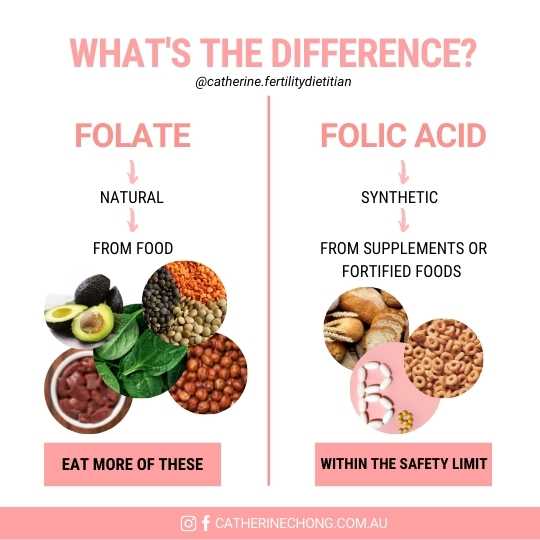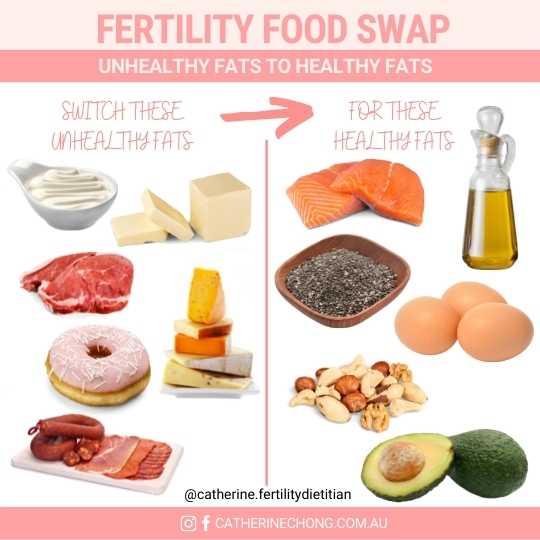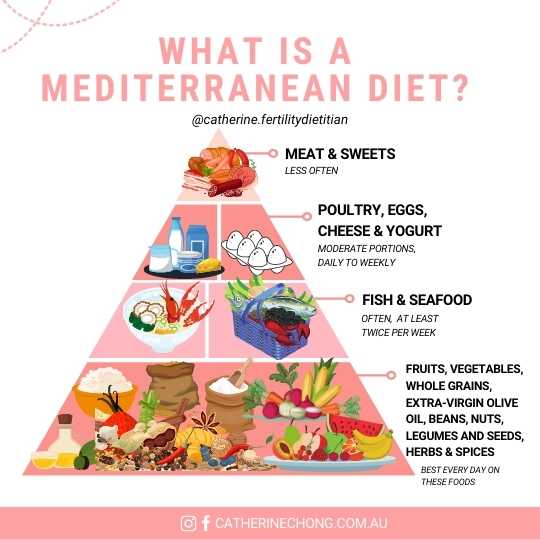How Are Diet And Fertility-Related?
3 Mins Read
For men and women, a strong correlation exists between the foods that we consume and fertility. Optimising your diet and consuming certain foods may help to increase fertility and get pregnant faster.
There is growing evidence that following a “Fertility Diet” and focusing on specific nutrients may improve the egg and sperm quality, ultimately bettering a couple’s chances of falling pregnant naturally.
Now, let’s look at three essential vitamins and nutrients that have been found to help increase fertility:
1. Folate And Folic Acid:

Folate or folic acid are often used interchangeably, however folate refers to the nutrient in its natural form, whilst folic acid is the synthetic form found in supplements and fortified foods.
Foods naturally rich in folate include:
- Liver (*Liver contains a high dose of vitamin A, it is best to avoid during pregnancy)
- Leafy green vegetables, such as broccoli, spinach, rocket, brussels sprouts, and asparagus
- Mung beans and red kidney beans, chickpeas, green and yellow lentils, and split peas
- Beetroot
- Quinoa
- Seaweed/nori
- Egg
- Avocado
- Nuts and seeds, such as peanuts and sunflower seeds
In addition, breakfast cereals, fruit juices and bread are often fortified with folic acid.
Folate is considered one of the essential nutrients before and during pregnancy as there is a well-established relationship between low folate intake and increased risk of neural tube defects (NTDs). Australian health guidelines recommend that women take 400 ug/day of folic acid for 12 weeks at least one month before conception and for the first three months of pregnancy to reduce the risk of neural tube defects.
There is also research that suggests that there are fertility benefits of folate beyond the prevention of NTDs. A Danish cohort study found that folic acid supplementation resulted in women falling pregnant faster than those not taking the supplement. Folic acid supplement use was associated with a shorter time to pregnancy.
In a small randomised controlled trial of the subfertile women who took a multivitamin (containing 400 µg/day of folic acid) for three months, 26% had a pregnancy compared to 10% of women who didn’t.
If you have a family history of NTDs, any pre-existing health conditions such as diabetes, or are overweight; you may require a higher dose of the folic acid supplement. Please consult a fertility dietitian to assist you in your pregnancy planning.
2. Omega-3 Fatty Acids:

Omega-3 fatty acids are often referred to as ‘good fats. But what makes fats ‘good’ or ‘bad’?
Good fats are unsaturated fats. These are considered good for your health as they can lower blood cholesterol, reduce inflammation, and may help to increase fertility through improved egg quality and embryo implantation.
This is opposed to saturated fats, which are commonly known as bad fats. Saturated and trans fats have been found to increase insulin resistance and be detrimental to ovulatory function.
An Australian study found that omega-3 and omega-6 polyunsaturated fats intake were higher in those who achieved pregnancy. Other studies around the world have found similar results. There is now a consensus that increasing intake of unsaturated fats, particularly omega-3 fatty acids, and lower saturated and trans fats consumption, is associated with a greater chance of becoming pregnant.
Foods rich in omega-3 fatty acids include:
- Oily fish, such as salmon, sardines, herring and tuna
- Nuts and seeds, including walnuts, linseeds (flaxseeds), hemp seeds and chia seeds
- Oils and spreads
- Animal sources like eggs, chicken and beef
3. Mediterranean Diet:

The Mediterranean diet is otherwise known as the best fertility diet. This healthy eating pattern promotes higher consumption of fruits and vegetables, legumes, whole grains, low-fat dairy, and seafood and poultry whilst limiting consumption of red meat, refined grains, and processed foods. This diet has been highly studied for decades and has numerous health benefits due to its anti-inflammatory and anti-oxidative properties.
Your eating habits and lifestyle are essential as studies suggest that a healthy preconception diet significantly affects fertility and can increase the chance of falling pregnant, particularly for IVF patients. Adherence to this diet has been found to increase fertility in women and improve semen quality in men.
In addition to improved fertility, research has found that following the Mediterranean diet can decrease the risk of pregnancy complications such as gestational diabetes and preeclampsia. By nourishing your body with more fertility-friendly foods, you can increase your fertility and chances of falling pregnant and support your and your babies’ health.
Need more help? I’ve worked with many women to increase their fertility to get pregnant sooner, and nourish their bodies for pregnancy.
I can help you too by creating a personalised nutrition plan tailored to your health conditions and nutritional needs.
With all my love


